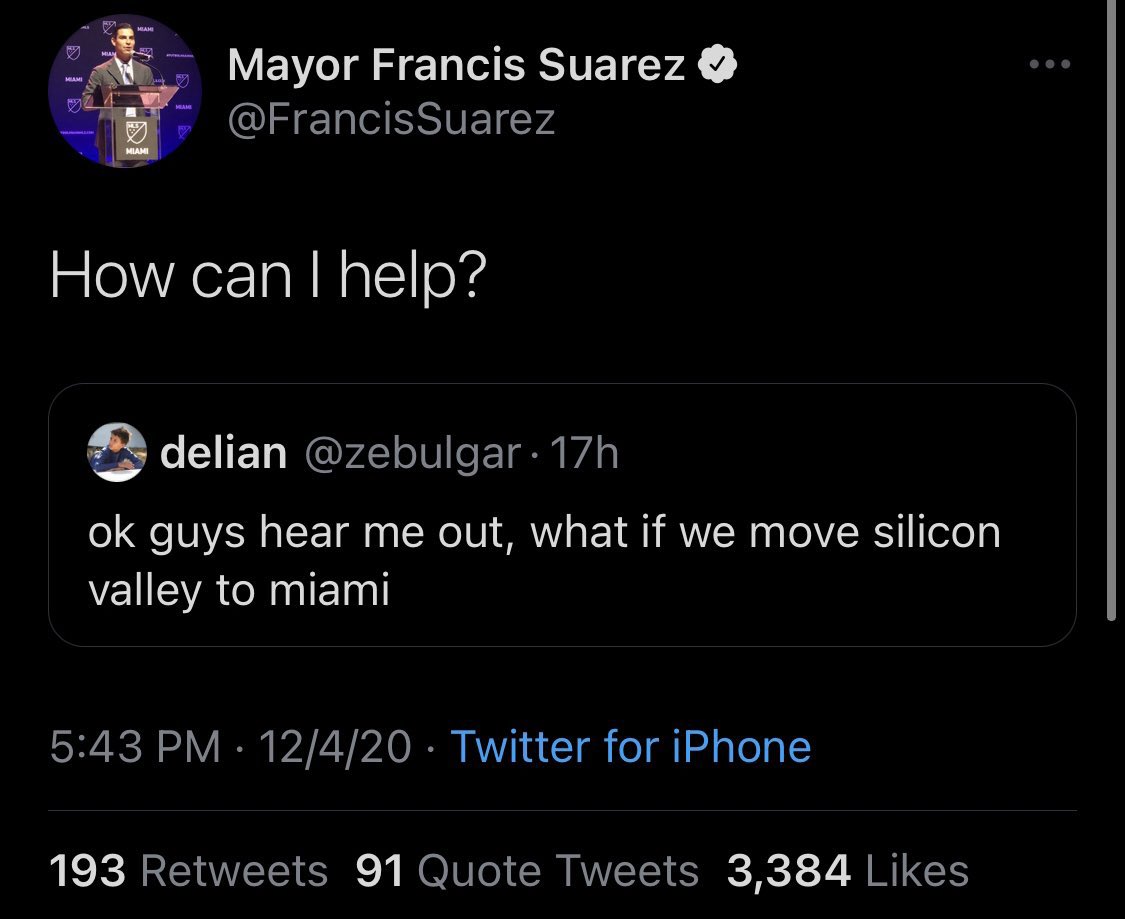
Mayor Suarez has single handedly reformed politics Twitter.
First, politicians around the world now understand they can recruit constituents with their tweets.
Second, they now understand they can *lose* constituents with their tweets.

First, politicians around the world now understand they can recruit constituents with their tweets.
Second, they now understand they can *lose* constituents with their tweets.
https://twitter.com/rrhoover/status/1342691977800810496


What @FrancisSuarez has done is being studied by cities and countries around the world.
After years where Twitter showed us the worst of politics, we have a glimpse of what it can be at its best.
With one tweet, he helped launch a new era of economic development.
After years where Twitter showed us the worst of politics, we have a glimpse of what it can be at its best.
With one tweet, he helped launch a new era of economic development.
https://twitter.com/francissuarez/status/1341988801435078656
Mayor Suarez shows a new path for a startup politician.
You can now make an international impact without waiting years to pay your dues & work your way up.
Just support technologically progressive policies & recruit talent online. Now you can build your city with every tweet.
You can now make an international impact without waiting years to pay your dues & work your way up.
Just support technologically progressive policies & recruit talent online. Now you can build your city with every tweet.
You can calculate the ROI, but if took 1000 tweets for Mayor Suarez to recruit a single billion dollar company to Miami he’d be at $1M per tweet.
And he’s doing way better than that.
Twitter may become the single most valuable economic development channel in the world. @jack
And he’s doing way better than that.
Twitter may become the single most valuable economic development channel in the world. @jack
The recipe for a policymaker to become a technological leader is simple.
Find the sector where your laws are among the most technologically progressive in the world.
For Wyoming, crypto. For Japan, stem cells.
Then recruit founders & funders online. And build your economy.
Find the sector where your laws are among the most technologically progressive in the world.
For Wyoming, crypto. For Japan, stem cells.
Then recruit founders & funders online. And build your economy.
A crucial component of this will be cities recruiting like startups — and tracking their conversions.
Now that politicians can gain or lose constituents with every tweet, helping or harming their city economically, we have quantifiable skin in the game.
The startup politician.
Now that politicians can gain or lose constituents with every tweet, helping or harming their city economically, we have quantifiable skin in the game.
The startup politician.
https://twitter.com/davidsacks/status/1342007449230876674
• • •
Missing some Tweet in this thread? You can try to
force a refresh





